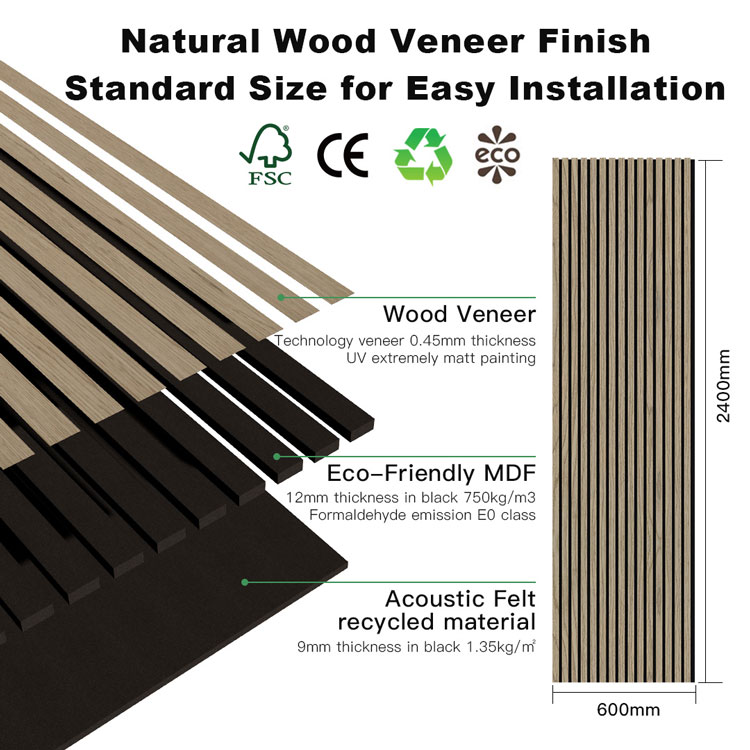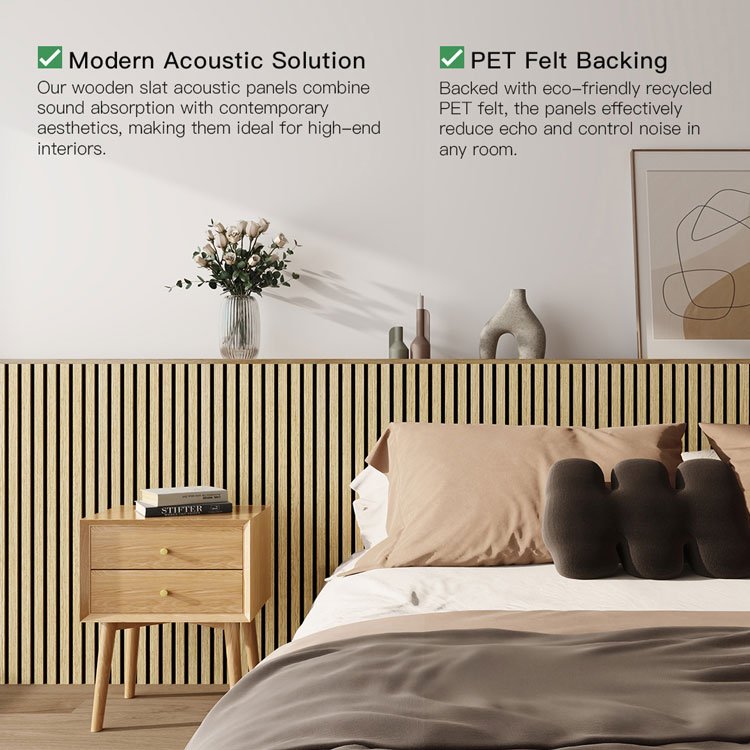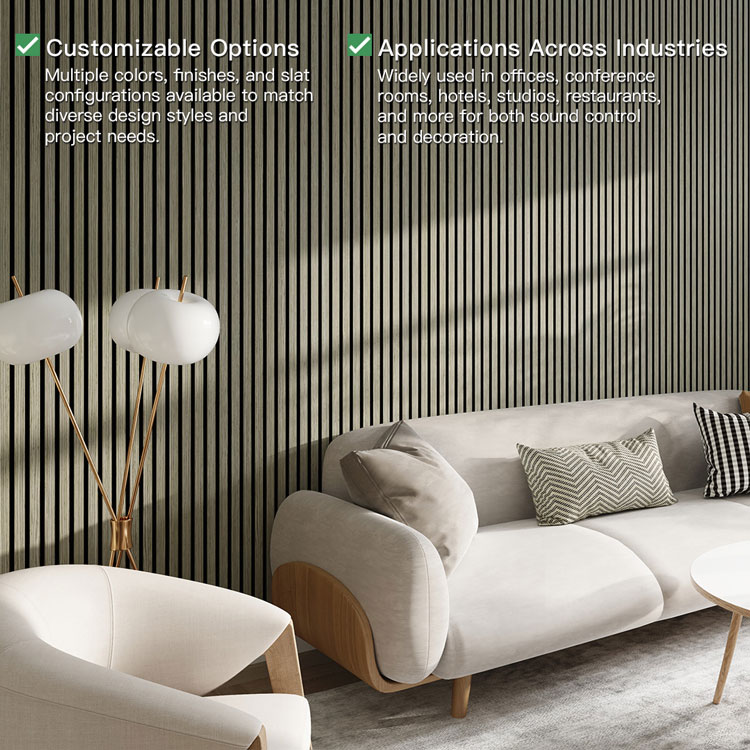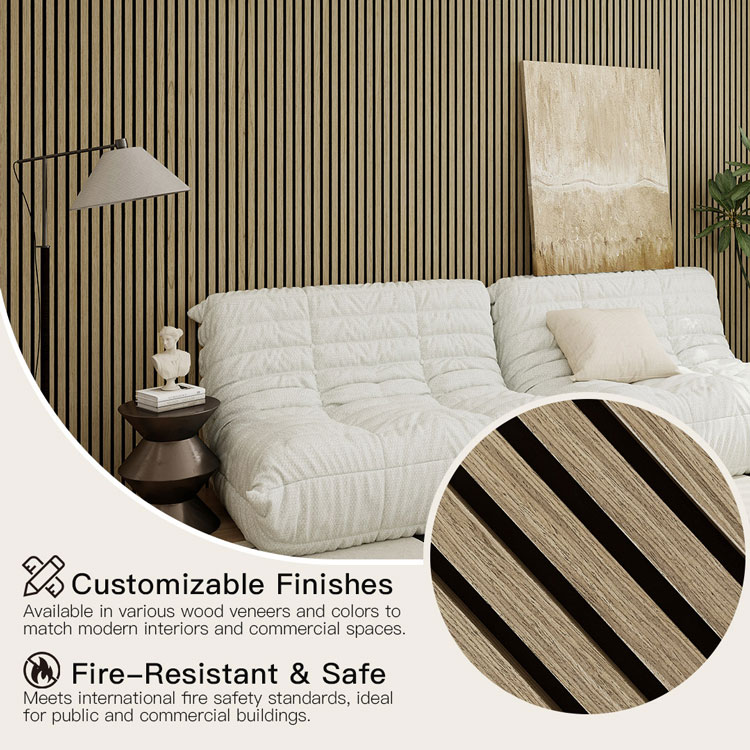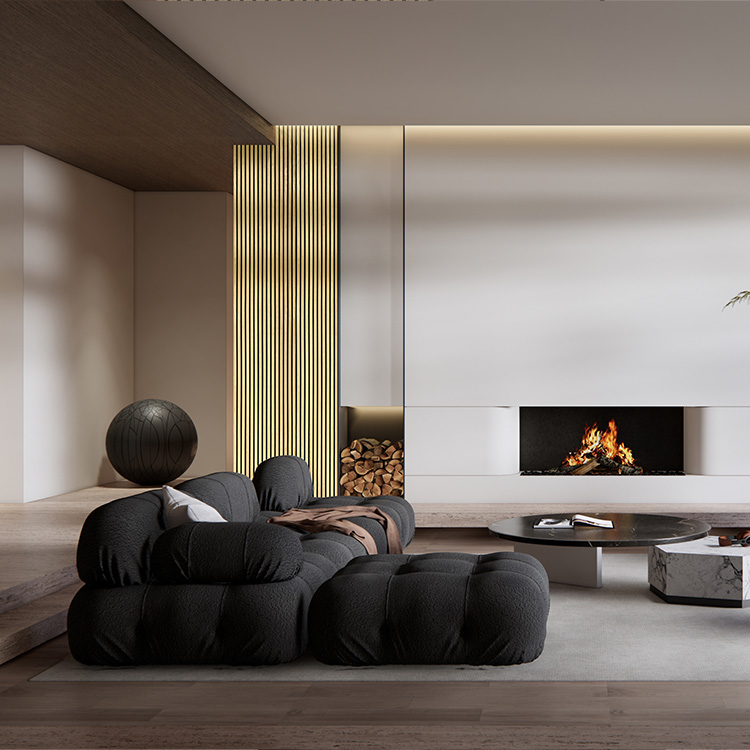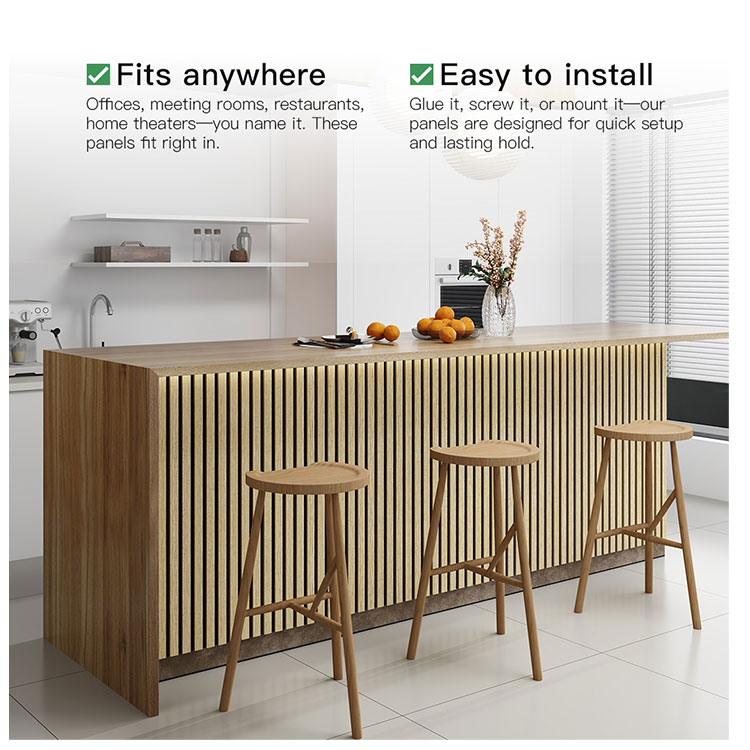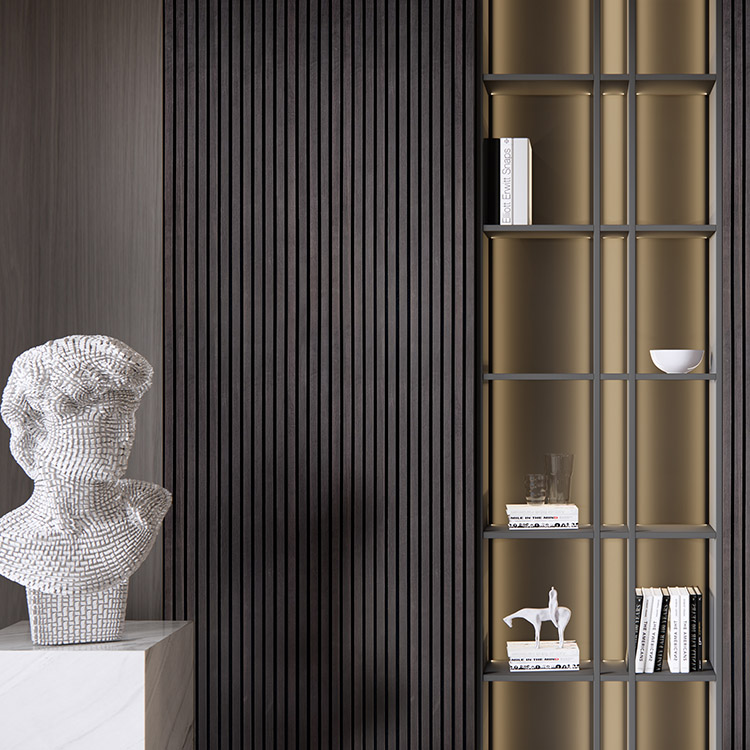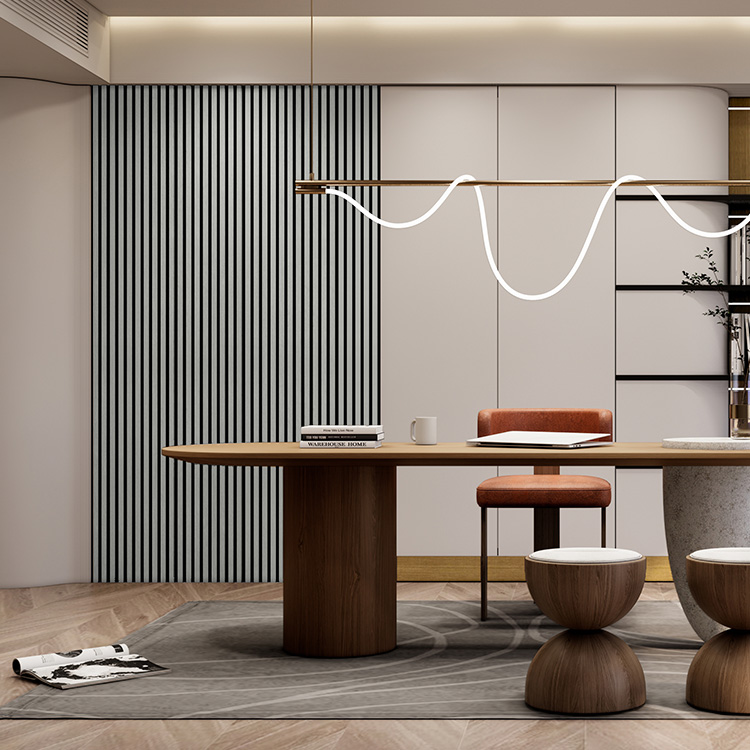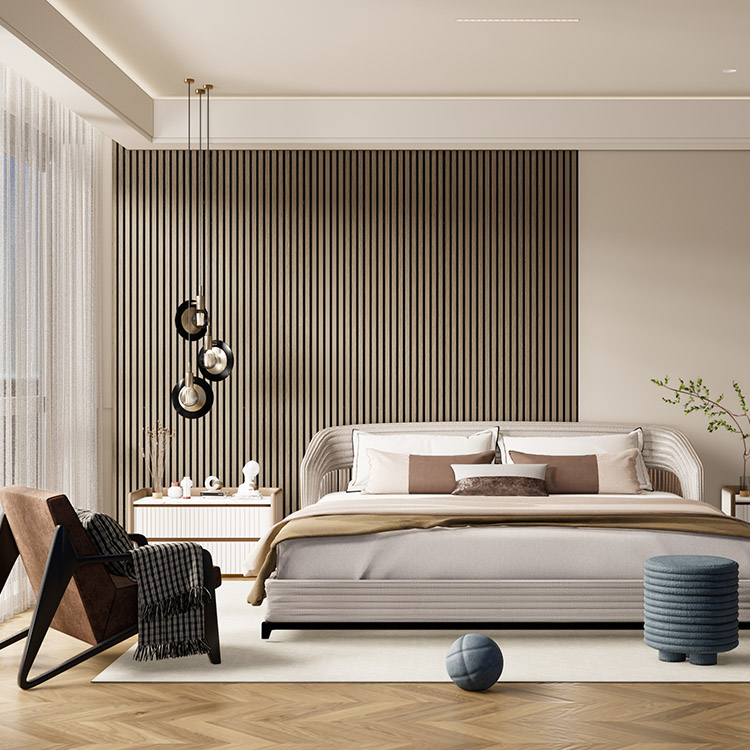Creating a completely soundproof room is the dream for anyone who values peace, privacy, or professional audio quality — from home studios and theaters to offices and recording spaces. But achieving true soundproofing requires more than just adding a few panels.
In this guide, we’ll explain the science behind soundproofing, the essential steps to fully isolate a room from noise, and how Guangdong Leeyin Acoustics provides advanced acoustic solutions trusted worldwide.
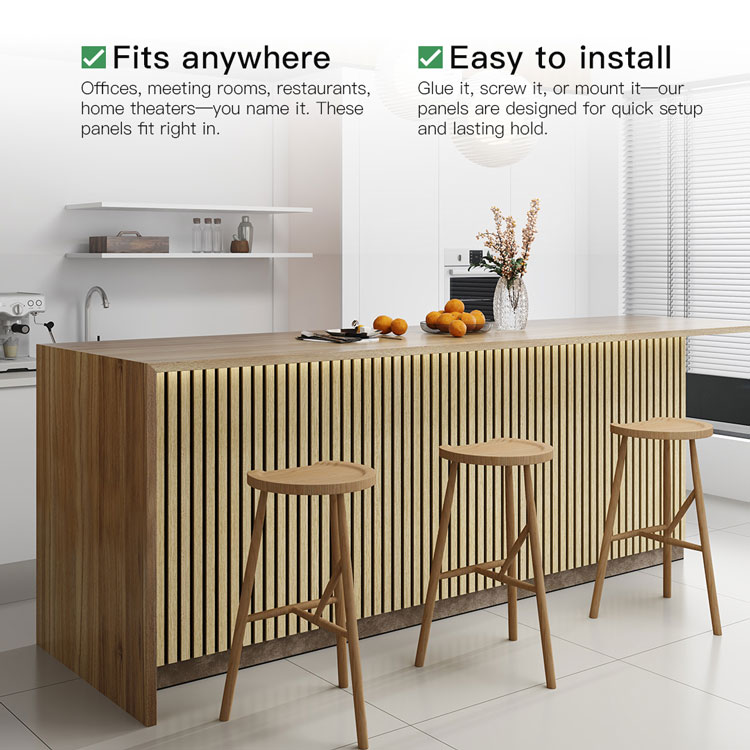
Understanding What “Completely Soundproof” Means
Before diving into techniques, it’s important to distinguish soundproofing from sound absorption.
A completely soundproof room requires materials and designs that stop vibrations and airborne noise from passing through walls, ceilings, floors, doors, and windows.
1. Add Mass to Walls and Ceilings
Sound travels through air and solid materials as vibrations. To stop it, you need heavy, dense barriers.
Effective Methods:
-
Use double drywall layers with Mass Loaded Vinyl (MLV) sandwiched in between.
-
Install Leeyin acoustic wood slat wall panels backed with high-density PET felt, which not only absorbs sound but also enhances room aesthetics.
-
Seal every gap using acoustic sealant or caulk to eliminate sound leaks.
This combination increases wall mass and reduces vibration transmission, providing an essential foundation for total soundproofing.
2. Decouple the Structure
Even the densest wall can transmit sound if vibrations pass directly through it. That’s why decoupling — separating structural layers — is crucial.
How to Do It:
By introducing this mechanical separation, you block impact noise (like footsteps or bass vibrations) from traveling between surfaces.
3. Fill Cavities with Absorptive Material
Inside walls and ceilings, absorption materials help prevent sound from bouncing around and leaking through gaps.
Recommended Options:
-
Mineral wool or fiberglass insulation — dense and fire-resistant.
-
Acoustic foam panels — effective for mid and high-frequency sound.
-
PET felt acoustic panels from Guangdong Leeyin Acoustics — eco-friendly, recyclable, and excellent at absorbing a wide range of frequencies.
Leeyin’s E0-grade MDF + PET felt acoustic panels not only improve sound absorption but also ensure low formaldehyde emissions and environmental safety.
4. Soundproof Doors and Windows
Doors and windows are often the weakest links in a soundproof room.
Solutions:
-
Use solid-core doors instead of hollow ones.
-
Add weatherstripping and door sweeps to seal gaps.
-
Install double- or triple-glazed acoustic windows with laminated glass.
-
For extreme noise isolation, build secondary interior windows.
Even small air gaps can allow significant sound leakage — sealing is key.
5. Soundproof the Floor
If noise is entering through the floor, consider:
-
Installing acoustic underlayments beneath carpets or flooring.
-
Using rubber mats or cork layers to dampen vibrations.
-
For professional spaces, building a floating floor structure.
This step is especially important in multi-story buildings and studio setups.
6. Treat Interior Surfaces with Acoustic Panels
Once the room is structurally soundproofed, improve its acoustic quality using absorption panels.
Leeyin Acoustic Wood Slat Wall Panels are ideal for this step.
They combine:
-
Natural wood finishes for modern aesthetics.
-
PET felt backing for high-performance sound absorption.
-
Sustainable materials that meet FSC and E0 environmental standards.
They not only make the room quieter but also elevate the design with stylish, customizable finishes.
7. Seal All Gaps and Openings
No matter how thick your walls are, even a small unsealed crack can ruin your efforts.
Use acoustic sealant, foam backer rods, and door gaskets to close every possible opening — around outlets, vents, and light fixtures.
The Professional Approach — Leeyin Acoustic Solutions
At Guangdong Leeyin Acoustics, we specialize in comprehensive acoustic design and material solutions.
Our advantages include:
-
20,000㎡ modern factory with advanced production lines.
-
Strict quality control following international standards.
-
Strong R&D team that continuously develops high-performance acoustic panels.
-
Global leadership in exporting wood slat wall panels and acoustic panels.
From residential soundproofing to studio construction, Leeyin’s products are trusted by architects, designers, and builders worldwide.
